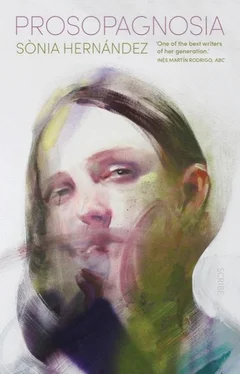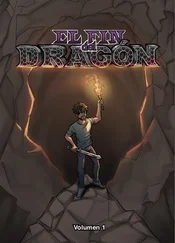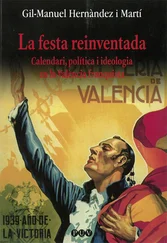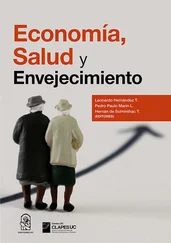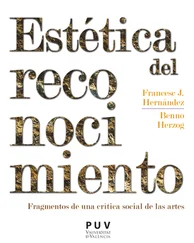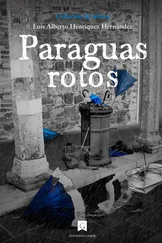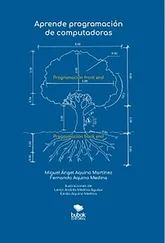How would I ever be able to write a feature for the newspaper based on these riddles? The assumed reader of my article would be reading it to share in the revelations supposedly gained by local high school students after receiving classes from a prestigious artist who had come home after many years of exile: the nephew of a heroic soldier who, despite everything, had been defeated. Thanks to this legacy, the kids would hear the testimony of someone who represented the nation’s dramatic history, the richness and exoticism of many years in Mexico, the patina of a renowned intellectual with whom powerful politicians from all over the world had wanted to have their photos taken, and the humility of an artist who returned to his homeland because he had never been able to forget the essential things: roots and childhood. But from the clues I’d been able to gather myself, I’d never be able to write the article. Where did that huge painting sitting in my hallway fit into all this?
I had caught Berta staring at the painting on several occasions. Since Mario’s diagnosis, a calm had settled over us. She still maintained a certain distance from me, which she seemed to be using to protect herself, but she was much less tense, and she was distracted by other matters that were much more important than everyday skirmishes caused by living with me. She never tried to hide it when I found her looking at the painting. Even so, I knew better than to ask. Finally, it was Berta herself who wanted to talk about it.
‘I always used to tell Mario and Jorge that you have to look from behind the eyes, straight from the optic nerve, because the image that arrives at the brain is composed inside the eye. Only if you look directly from the brain are you able to perceive an object’s pure form. That way you can see things in different ways, without them being what we’ve always been told they are. Which is to say that if you see a door or a landscape, that’s because ever since you were small you’ve been told that it’s a door or a landscape. But if you’re able to see the colours and forms separately, without a small part of your brain telling you “this is a landscape,” the reality is quite different. This is why you have to try to see things with your brain. I think that if you try a little harder, you can even see things that are not normally there. Do you think so?’
‘That’s the game you used play at school, isn’t it?’
‘Since Mario got sick we don’t play it anymore, but I still try it sometimes. If there are ultra-violet rays or insects or bacteria we can’t see, then there have to be other things our eyes can’t see, right? We should learn to perceive these things in other ways. Dogs, for example, can hear and smell things that we can’t.’
‘I don’t think Mario’s illness has anything to do with this.’
I wasn’t trying to reassure Berta, I was simply telling her what I thought. But I had a feeling she interpreted my words as interference, and I understood I wasn’t allowed to talk about her game. She kept looking at the painting.
‘It’s important to hold your breath, because breathing controls the rhythm of the circulation of blood as it flows to the brain, and the brain tells us how we should see everything. While you breathe, everything is normal, and the body functions just the same as always, so you can’t force it to see things differently. It’s like when you manage to see an image in three dimensions. That day I was trying to see the painting in three dimensions, which is why I fainted, because I saw an image that frightened me, as if I were floating in the air and about to fall down amongst all those blocks, like in a dream when you fall from a precipice.’
I never saw blocks in the sequences of squares and cubes of different colours that made up the painting, but I couldn’t tell her that. Berta continued talking:
‘When you manage to see things from behind your eyes, or with your whole brain, everything is different. In our literature class, we had to read a story by Cristina Fernández Cubas where she explains this whole thing. It’s about a boy who learns to see everything through the lens of horror, and then he can’t stand anything at all. It’s a scary story, and it doesn’t end well. Something similar is happening to me now, I can no longer see things the way you do, or the way others do. You can’t see what’s terrifying about this painting, which is why you interview that man and go to see him at his house.’
Berta’s reference to the writer reminded me of something Vicente Rojo had mentioned: the painter Bram van Velde’s comment that ‘once the eye has confronted horror, it sees it everywhere’. But I couldn’t understand what horror my daughter had confronted and why I hadn’t been able to protect her. Instead of asking her about this, we continued arguing about my relationship with the artist she seemed to detest so much.
‘I don’t go to his house, it’s his studio.’
I knew my interruption would annoy her, but I felt the need to defend myself. Suddenly, my daughter had situated herself in a superior position to my own, and spoke with flat, almost bored assuredness, the way someone who has uncovered an important secret would speak to someone like me, her mother, who hasn’t.
‘It’s not his studio. That’s why they won’t let him give painting lessons, because they found out he’s been telling a bunch of lies. That’s also why they told him to remove the painting from the school. You have no idea what’s going on. But Dad knows.’
I didn’t even try to defend myself from this attack. I wanted to know how far she would go, and why she mentioned Pablo. She waited for me to react. I didn’t, and we stood in the hallway looking at the painting for so long that I thought the time had come for me to leave, but then Berta started talking again.
‘Now I understand why that man followed me home, why he gave me that picture in the envelope, and why you interviewed him and brought this painting home. And that’s why I want us to have an ibis for a pet. I’m like the boy in the story, who can only see things through a lens of horror. That’s why there are only ugly things in my life. The psychologist at school told me that’s not true, that there are many things in my life, and many of them are beautiful, but that I only focus on the ugly things. She doesn’t understand anything. First, she says one thing, then the other. First, she says I have to look at all the good things there are in my life, and then she tells me I have to learn to live with ugly things, because they’re important, too. She says that if I’m feeling sad about what’s happening to Mario, there’s nothing wrong with that, and that I should see sadness as a good thing, because it means that Mario is very important to me and is a part of my life, and that will always be important. And she says you and Dad will always be a part of my life, which is a good thing, too.’
At that point, she looked at me searchingly and shrugged her shoulders, furrowing her brow as if she were waiting for me to clarify this apparent contradiction. But I didn’t know what to say. I had the feeling she had already discussed all this with her father.
‘Mario and I wanted to see things differently, that’s why we trained our eyes and made an effort to learn. If we could see the elements that make up an object separately, reality would be completely different and everything would change. Ugly things would cease to be ugly, and people would have to use different words to explain the world. The way we relate to each other would be different, and it would be possible to have an ibis at home.’
‘Why is it so important to have that bird as a pet?’
‘I already told you. To keep me company.’
At night, before going to bed, I saw that I had an email from Isabel, full of her impatience and concerns and doubts about the actual possibility of publishing the article about Vicente Rojo. I didn’t respond. I dreamed again of the magnificent ibis that stalked through the hallway of my home, free of the presence of the painting, and that in its wake it littered the floor with pieces of paper on which Berta had drawn her tiny circles.
Читать дальше
